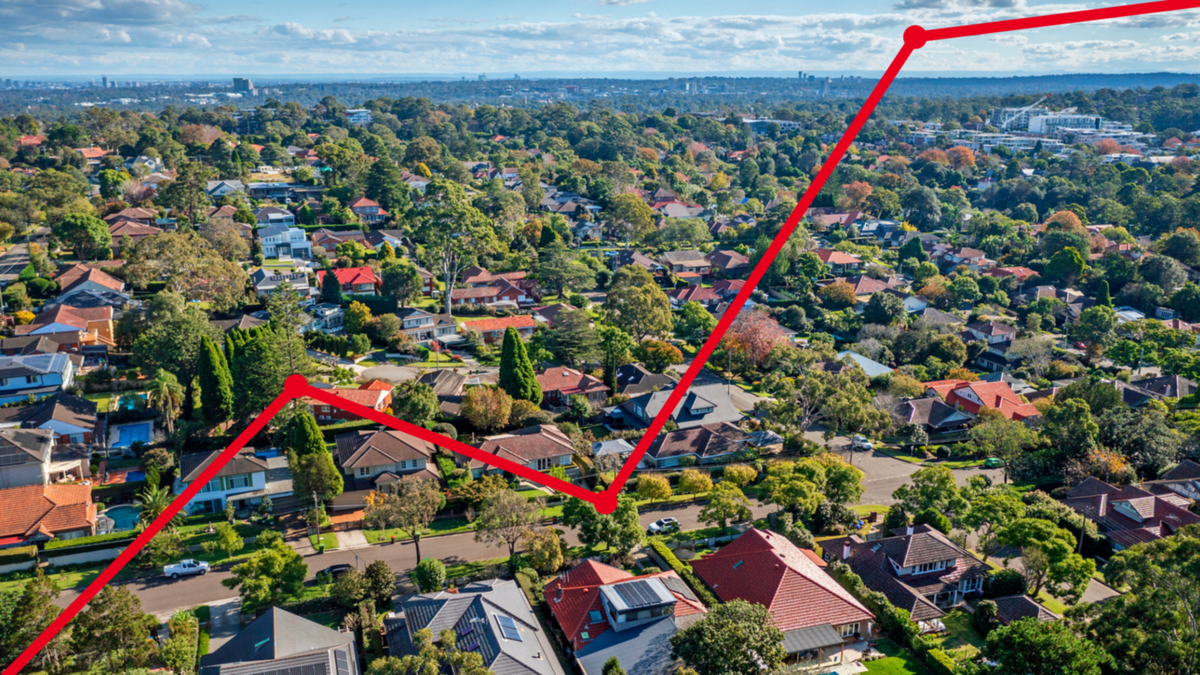Experts say Australian renters are bearing the brunt of an industry-wide housing crisis, with some reporting rent rises as much as $150 a week.
But the experts say there is no quick fix and fear the situation is set to worsen.
Watch more on this story in the video above
Watch the latest News on Channel 7 or stream for free on 7plus >>
A lack of supply combined with four consecutive interest rate rises has increased the average rental price across Australia’s capital cities by up to $55 over the course of a year.
RMIT Center for Urban Research senior research fellow Dr Megan Nethercote said it was going to get worse before it got better.
“With the latest interest rate rise and subsequent belt-tightening, renters risk their landlords passing on the costs of rising mortgage repayments,” Nethercote said.
“Some renters will lose their homes as landlords sell up.
“The plight of renters looks set to worsen as the knock-on effects of rising interest rates filter through to renters and combine with cost-of-living pressures.
“With almost half of renters on rental assistance already in rental stress, the risk of some renters falling into homelessness is real and high.”
How much are rents rising by?
Rents rose across the board in the year to June, according to Domain’s latest rental report.
The average rent for a house across the capital cities rose from $460 to $515 while units increased from $410 to $460.
RMIT research fellow Dr Louise Dorignon said rent prices were driven by demand. The only way to balance prices was to increase supply, she said.
Tenants are reporting their rent increasing in recent months, coinciding with rate rises.
The latest RBA decision on Tuesday increased the cash rate by 0.5 per cent, effectively adding $174 to monthly repayments for the average Australian mortgage holder.
Is it legal for your landlord to put up rent?
Tenant advocacy groups and industry experts have previously told 7NEWS.com.au there was nothing stopping landlords from passing on that cost to tenants.
“Landlords can increase rent due to an interest rate rise, however, they need to be prepared for tenants to push back if it’s not warranted or it’s excessive,” property management agency :Different head of customer experience Shannyn Laird said.
“Landlords can also increase the rent if the lease is periodic (meaning it’s not fixed) and the tenant hasn’t had a rent increase in a certain time period.”
How often can a landlord put up your rent?
Laws on how frequently a landlord can increase rent vary depending on the Australian jurisdiction.
In Queensland and Western Australia, in most cases, landlords can only increase rent every six months and must give 60 days’ notice.
In Victoria, NSW, South Australia, Tasmania and the ACT, landlords can increase rent once every 12 months and must also give roughly two months’ notice.
In the Northern Territory, landlords can increase rent once every six months and only have to give 30 days’ notice.
Is there a limit to how much your rent can go up?
Your landlord can increase the rent, but there are rules on how much they can increase it by.
In most cases, it must be considered as not being “excessive” or “unreasonable”.
Tenants can complain to their jurisdiction’s Civil and Administrative Tribunal if they feel it is excessive.
What constitutes excessive differs in each jurisdiction. But, generally, rental bodies compare the increase to similar market rents and the physical condition of the property.
What can be done to fix the issue?
In short, quite a bit.
Dorignon said the current apartment stock doesn’t provide sufficient quality to meet the needs of current and future households.
“We need to transition to alternative and innovative modes of housing production, such as using less carbon-intensive materials, which would create more liveable apartment homes and, in the long term, more affordable ones for households,” Dorignon said.
Nethercote said renters represented a “growing cohort” in Australia.
“Renters deserve homes that are affordable, provide adequate security of tenure, are well-maintained and have appropriate provisions for tenant representation,” Nethercote said.
“Meeting these needs requires strong national leadership on housing; they warrant serious deliberation within a new national housing agenda.”
Watch: Scientists stunned by discovery of a ‘walking shark’.
.
